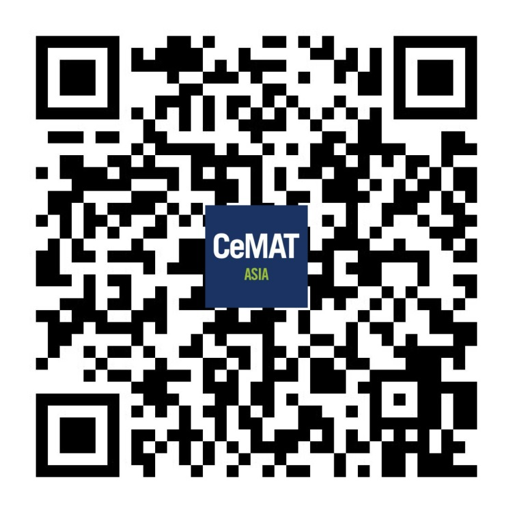Acquisitions by forklift magnates never driven by a whim
Abstract: We truly feel intelligence and automation are just around us. Wait to be changed or take initiative to change? You will find the answer just taking a glance at what forklift magnates are doing. As magnates, they never act on a whim.
Retrospect acquisitions by forklift magnates in recent years
Below are, among others, some acquisition cases by Toyota, Kion and Hyster Yale in recent years.
 |
Toyota Logistics Solutions
In 2017 Toyota acquired Bastian Solutions, LLC and TICO and set up TALS, a new business branch dedicated to logistics related solutions and activities in North America. In the same year, it acquired Vandlande, a comprehensive automation solution provider, which expanded global service scope of Toyota and enabled it to cover almost all automation segments.
 |
 |
In 2015, Kion Group acquired the automation department under Egemin, which allowed the former to expand its know-hows and capabilities and provide more solutions to intralogistics and automation operations. In 2016, Kion ascended to a global leader in intelligent intralogistics solutions backed by the complementary and collaborative advantages after acquiring the business of Dematic.
 |
Hyster-Yale Group, aiming at expanding its business capabilities, concluded an agreement on robot forklift with Balyo so as to provide automatic forklift and highly productive solutions. Meanwhile, Balyo will also be engaged in promoting the wide application of its new robot solution; the same year saw Hyster-Yale’s acquisition of Australian Speedshiled Technologies to enhance its business in fast increasing remote information processing solution and agile data analysis on materials handling fleet.
What are the characteristics behind such acquisitions
The said acquisitions break the boundary of forklift industry and reach further to areas related to AI and smart logistics such as automation, intralogistics, solution, intelligence and unmanned system. Customers’ needs are located by means of information processing and data analysis and automatic materials handling solutions are realized depending on intelligence, automation and unmanned system.
Why are such acquisitions not driven by a whim
Such acquisitions reveal the trend of the materials handling industry. AI and automatic logistics are a technological outlet with great potential. Not only forklift magnates but many players of other industries are moving toward this track.
 |
Regarding Intralogistics: In BMW shops, unmanned forklifts provides workers with parts needed; Amazon, the world largest on-line retailer also fully leverages robots in its intelligent logistics center while recently, drones in Linde become a right-hand man, greatly simplifying its stock-taking process.
 |
Courier Business The first delivery van of Dispatch, an on-demand UGV startup based in San Francisco, is nicknamed “Carry” which can deliver the parcel to the receiver safely on the road; Amazon also develops drones. Maybe someday, drones can directly deliver small parcels to the front doors of customers.
Transport: Driverless vehicle’s good day is just around the corner. Recently, Freightliner “Inspiration” Truck, a driverless vehicle designed by Daimler has obtained the permit for road driving by the Nevada State, making itself the first to exercise road testing in this region.
Midea’s acquisition of the robot supplier Kuka and joint investment of GM and CAT into Clearpath specially for producing unmanned forklifts able to move in plant shops both reveal a fact that even if the forklift industry remains untouched in itself, and other industries will force it to see tremendous changes.
I. Upgrading traditional industries through M&A
Focus of M&As in recent years is shifting from R&D of traditional forklifts to intelligent ones. Intelligent forklifts can integrate unmanned driving, automatic identification and operation, presenting a perfect match with intelligent plants. The American Rethink Robotics has produced the intelligent collaborative robots adaptive to the real world. An intelligent collaborative robot can get adapted to the changes in the real world and adjust its application in a rapid and prompt fashion to perform production tasks like a human. In future, a worker remaining in the logistics and production processes may gradually find his new colleague to be a robot while he himself plays a role similar to administrator or commander. Demand for traditional forklifts will become very little in such an intelligent plant. M&As update traditional forklift industry into a facilitator of intelligent plants.
Realizing intelligent intralogistics solutions through M&A
M&As drive tradition forklift industry to act on process optimization, workforce reduction and efficiency improvement and attach greater importance to intralogistics solutions.
The materials handling system involves more and more diversified goods. Take the distribution center of the commodity circulation links as an example, there may be thousands of varieties of goods entering the system. The USPS, for instance, handles 9,500 parcels per hour. Such logistics service suppliers drive forklift manufacturers to focus on automation and obtain latest technologies for intelligent intralogistics solution by means of M&A.
III. Capture global automation market through M&A
Team-up between large players is the most unique feature of the acquisitions in recent years where resources of both sides are fully leveraged to achieve scale economics effect and global service range of forklift magnates is expanded through M&A. Logistics automation system providers can make full of forklift magnates’ sales and service networks to facilitate their sustainability and profitable strategic growth goal.


